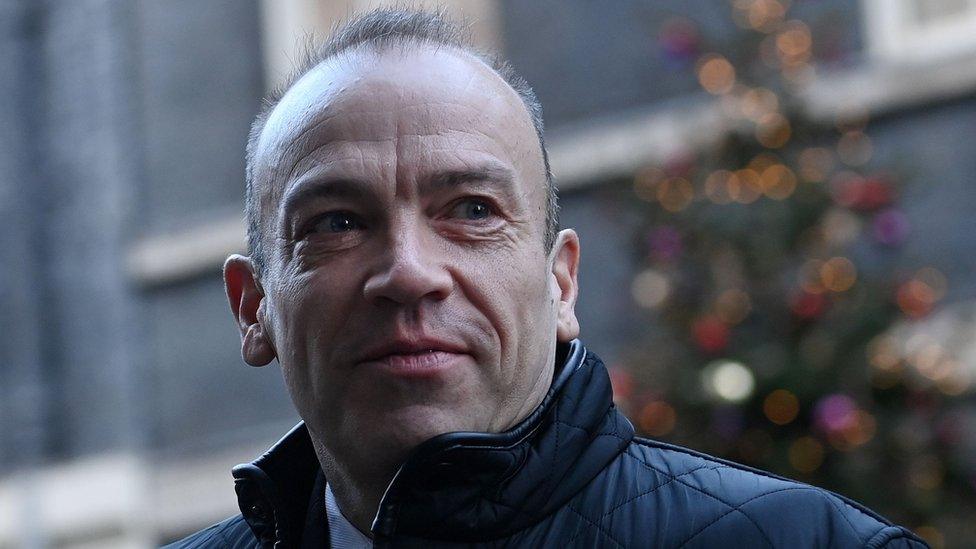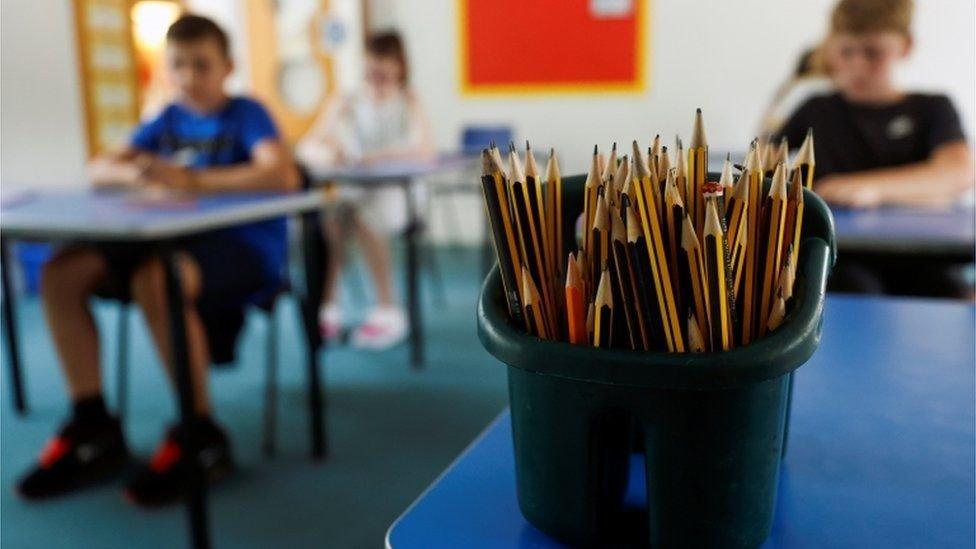Northern Ireland schools left in 'impossible position' with budget
- Published

Schools in Northern Ireland have been left in an "impossible position" by the recent education budget.
That is according to a letter to the secretary of state from the president of the Association of School and College Leaders (ASCL).
Graham Montgomery said schools were facing a "significant real terms cut".
The Northern Ireland Office said the budget, set by the secretary of state in the absence of executive ministers, prioritised health and education.
The basic funding for schools was reduced by about 0.5% in the Stormont budget.
However, they are getting some extra money to help with existing staff salary agreements and rising energy costs.
The Education Authority (EA), though, is also faced with saving around £100m from its block grant in 2022-23.
It pays for things like support for children with Special Educational Needs, school transport, meals and maintenance.
ASCL is a union which represents many post-primary school principals and senior leaders in Northern Ireland.
It is currently the only teachers' union in Northern Ireland not taking industrial action.
The other five unions are taking action short of strike after rejecting a pay offer as "inadequate" in February.

NI Secretary Chris Heaton-Harris set out a budget for Stormont departments in November
'A retrograde step'
Teaching unions in Northern Ireland have asked for a pay settlement for 2022-23 of inflation plus 2%.
Inflation is currently at 11% - the fastest rate in the rise of the cost of living for decades.
In his letter to Chris Heaton-Harris, Mr Montgomery, who is also the principal of the Royal School Armagh, called the education budget "a retrograde step".
"The additional funding allocated for energy costs and incremental pay awards is offset by a reduction to the aggregated schools budget which represents a significant real terms cut overall and leaves schools in an impossible position," he wrote.
"It is very likely that this will necessitate staffing reductions that will in turn lead to larger class sizes, reduced curriculum options and less individualised support for students who need extra help."
Mr Montgomery also referred to previous analysis by the Institute for Fiscal Studies, which suggested that less is spent on each school pupil's education in Northern Ireland than any other part of the UK.
"Further real terms cut to school funding will worsen this situation and set Northern Ireland even further behind the rest of the UK," his letter continued.
"You and those responsible for government in Northern Ireland must make it a priority to review and address this situation as a matter of urgency.
"It is imperative that there is an improved settlement which allows school leaders to plan their budgets with the confidence that they will be able to sustain the high quality of education that children and young people need and deserve."
The Northern Ireland Office said the pressures affecting the Department of Education demonstrated the "pressing need to have locally accountable political leaders in place".
"The budget, set by the secretary of state in the absence of executive ministers, prioritises spending in health and education and has an overarching objective of protecting the most vulnerable during a time of particular economic hardship," a spokesperson said.
"The budget position set out still delivers an increase to education spending of just under £300m.
"The Department for Education was projecting significant overspend which has resulted in difficult decisions needing to be made."
Related topics
- Published5 December 2022

- Published24 November 2022

